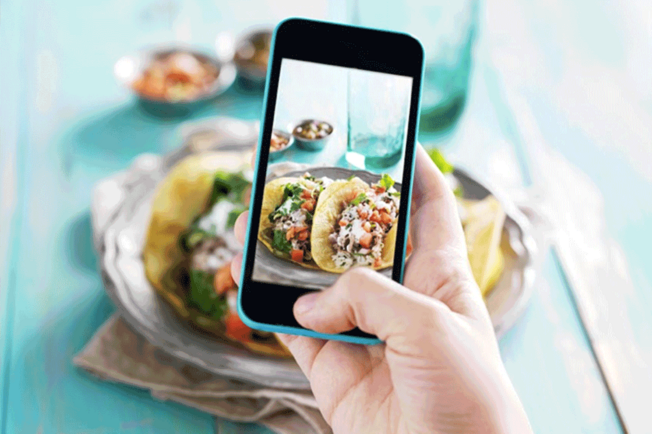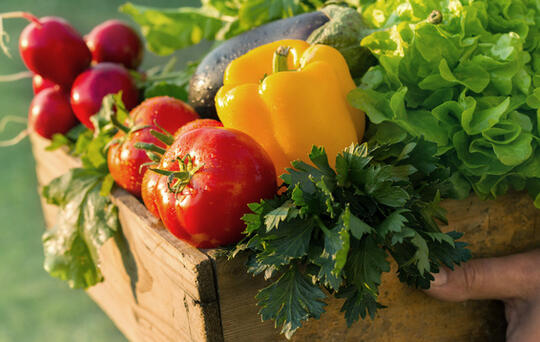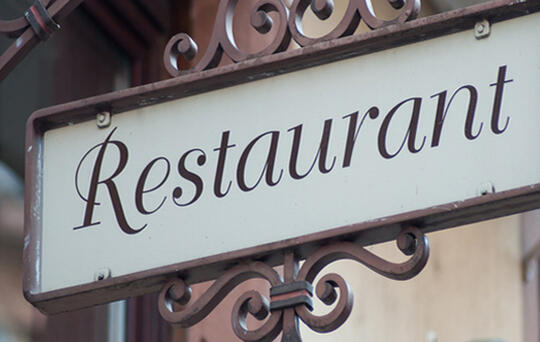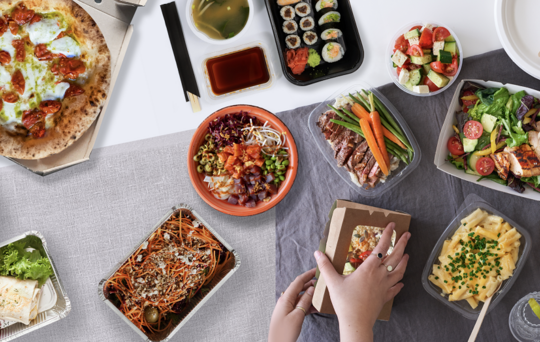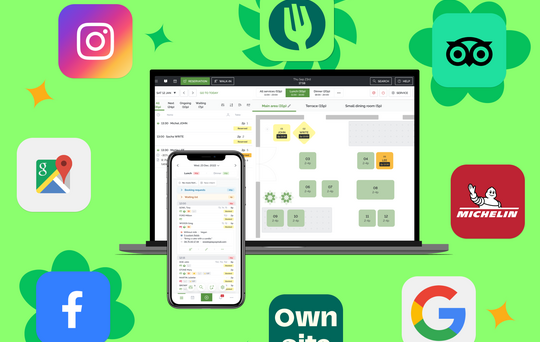How to reduce food waste in your restaurant
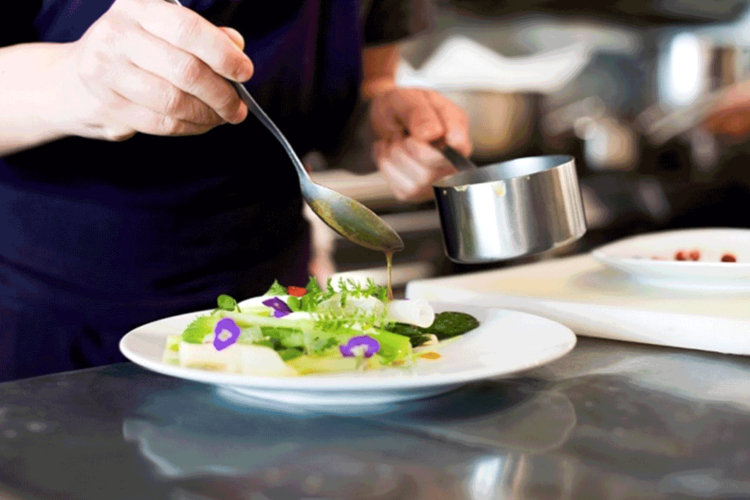
Reducing food waste is one of the biggest challenges faced by the restaurant industry, and has many destructive impacts. Food waste is not only environmentally and socially damaging, it is also harmful from a business perspective, with more climate-conscious consumers than ever making choices based on their environmental impact. Indeed, our food production system takes a significant toll on the planet, with 30% of greenhouse gas emissions attributable to it. Furthermore, according to statistics from the European Union, 58 million tonnes of food waste are produced in Europe every year*, most of which occurs during consumption at the household level, or in restaurants.
Are you aware of your restaurant’s food waste? Do you know how to reduce it? Get some tips to improve your restaurant’s sustainability by reducing food waste. The planet and your guests will thank you!
*eu-fusions.org
The impact of food waste in restaurants
Identifying constructive approaches to reducing food waste can have a staggering impact on how your restaurant operates.
Estimates suggest that 18% of ingredients purchased by the hospitality sector are wasted. This practice has a high economic and environmental cost.
Furthermore, the overproduction of food releases CO2 into the atmosphere, which contributes to making the UK the third largest producer of greenhouse gases after China and the US.
As you will already be aware, this issue deeply impacts the world we live in, only to produce a surplus of food that, is often thrown away.
But how can you reduce food waste in your restaurant? Could it even be possible to be more productive without less waste?
Keep reading to find out!
How to reduce food waste in restaurants?
You can start your battle against food waste with an operational overhaul: 84% of restaurants claim to have already implemented sustainable measures to address food waste.
Train your staff on waste management
First, it is essential to help your team understand the importance of waste management and to show them how they can have a significant impact on the environment.
You can train your staff on the best ways to manage food storage and properly preserve your raw materials. Education is key to ensuring that things are done right long term.
Conduct a food waste audit
Audit your restaurant’s food waste. Make sure that your restaurant’s stocks are well-monitored, and analyse leftovers to draw up a waste record. This will help you order less and optimise your food storage facilities.
Optimise menu and portion sizes
Keeping a sustainable mindset in the kitchen is crucial to reducing food waste. Based on analysis of your leftovers, you can change menu items according to diners’ preferences. Replace products frequently left on plates with other ingredients, or even remove them from your menu entirely. Also, consider reducing your portion sizes.
You can also get creative to make the most of leftover food and products with a short shelf life: find new ways to cook them or incorporate them into staff meals. Do keep in mind that safety and quality must always be at the top of your agenda.
Use of seasonal and local products
Try your best to offer seasonal products, which, besides being tastier for your diners, will have a substantial positive impact on the environment.
According to a study by TheFork, more than 70% of respondents now pay more attention to their food sourcing and quality (sustainable, organic food, etc.) and 30% have changed their food provider since lockdown to partner with more sustainable vendors. Try searching for local farms around you to get good products for a fair price. 52% of restaurants are already paying more attention to the origin of their ingredients, and 15% have already taken the plunge by changing suppliers for more eco-conscious options.
You can find more information on how to reduce your restaurant’s carbon footprint in this article.
Try TheFork Manager today
Engaging customers in reducing food waste
Now that you have audited your kitchen practices, there are many good ways to communicate your restaurant’s sustainability to your diners. This is a great way to benefit from broader customer engagement since flexitarian, vegan, and vegetarian customers are attractive targets for restaurant managers.
Promote sustainable choices
Highlight dishes made with seasonal and locally sourced products, enhanced on your menu by delicious images or appetising descriptions. Try adding an underline, or further advertising them with “We recommend” or “Frequently ordered” notes.
Customers are attracted to dishes promoted as the best of the day on platforms such as rotating chalkboards because they understand that this is where they will find the freshest produce.
Offer vegetarian and vegan options
Offer your guests vegetarian or vegan options. Being “veggie-friendly” will help your restaurant stay up-to-date with culinary trends.
Consider meal plans that include new dishes and drinks suitable for these dietary requirements. This article offers more ideas about dishes, drinks, decoration elements, and communication tips below.
Encourage use of doggy bags
Encourage the use of doggy bags in your restaurant. They are more popular in some countries than others, but cultural habits have been slowly evolving toward saving leftovers as part of more responsible food consumption.
Avoid using plastic equipment. Appropriate doggy bags made of recyclable paper or cardboard are available online.
Communicate your efforts with social media
Don’t hesitate to communicate your actions against food waste to increase awareness among your customers. Reducing food waste is a global issue, especially due to consumption habits in most developed countries. However, it is not irreversible and common mindsets are evolving.
You can use your social media channels to post pictures of your seasonal dishes, stories about your local suppliers, and examples of good sustainability practices. You can even interact with your community to share ideas on positive actions they could take against food waste themselves.
Long-term benefits of reducing food waste
Reducing food waste over time can lead to relevant long-term benefits.
- You will record significant cost savings. WRAP’s Guardians of Grub campaign aims to lower the economic impact of food waste. Their actions could help UK restaurants save £3.2 billion a year.
- You will optimise every operation. From food preparation to plating to consumption, food is wasted all over restaurants. Implementing effective strategies that can help you maximise the use of each ingredient will improve the efficiency of all workstations and create portion sizes that don’t over-cater to the needs of your clientele.
- You will improve your storage. For high levels of food safety, products must be stored in a way that guarantees close control over expiry dates, stock levels and purchasing controls to keep the inventory updated. Without unnecessary wastage, this process will become a much more streamlined task.
- You will plan your menu with a different approach. Opting for seasonal ingredients and more vegetarian and vegan options will keep your menu perennially tasty, inventive and off-beat.
Taking steps to reduce food waste is a no-brainer for the planet, society, your guests, and your restaurants. Are you ready to take the challenge and make your restaurant more sustainable?
*Internal analysis performed on TheFork customers in all countries from March 2020- May 2020


